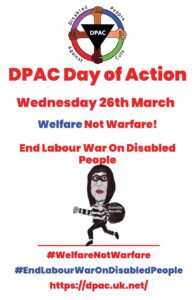Press play to watch/listen to “Access to Work Delays: 55,000 Still Waiting as Government Awards Contract to Maximus” or scroll to continue reading.
The Access to Work Hold-Up: What’s Going On?
If you’re one of the 55,000+ people currently waiting for support from the Access to Work (ATW) scheme, you’re not alone, and you’re probably wondering what’s causing the delay.
The UK Government recently signed a new contract with Maximus UK, raising eyebrows among disability advocates and employment support professionals alike.
Read about the contract here →
What is Access to Work?
Access to Work is a vital scheme that provides practical and financial support for disabled people in employment or self-employment. It covers things like:
Practical support in the workplace
This includes aids and equipment, such as adapted keyboards, specialist software, or ergonomic chairs.
Travel costs
It can cover extra travel expenses to and from work if someone needs to use taxis or other transportation due to their disability.
Communication support
It can help with interpreters or other communication support during job interviews or in the workplace.
Support workers
Access to Work can fund support workers, such as those who provide personal care or help with tasks at work.
Workplace adjustments
This can include modifications to the workplace to make it more accessible or suitable for the individual.
Mental health support
It can also provide support with managing mental health at work, including tailored plans or sessions with a mental health professional.
Training and development
Access to Work can fund training and development opportunities to help individuals improve their skills and advance in their careers.
Support for self-employment
It can also support self-employed individuals, helping them to establish or grow their businesses.
The goal is to remove barriers and help people stay in or get into work, regardless of their disability or health condition.
The Numbers Don’t Lie
According to the latest figures, more than 55,000 people are stuck in limbo, waiting for their Access to Work application to be processed. For many, this delay has meant:
According to the latest figures, more than 55,000 people are stuck in limbo, waiting for their Access to Work application to be processed. For many, this delay has meant: #ATW Share on X- Missing out on job offers
- Falling behind at work
- Going without essential support
These are not just numbers, they are people trying to navigate employment while managing disabilities.
Meanwhile, a New Contract…
The Department for Work and Pensions (DWP) has awarded Maximus, a private outsourcing company, a major delivery contract.
Maximus will now be responsible for managing parts of the Access to Work scheme, raising questions about:
- Efficiency: Will this speed things up or cause more confusion?
- Transparency: What does the contract mean for applicants?
- Accountability: Who’s responsible when delays cause real harm?
Maximus: A Controversial Choice

The decision to award Maximus the Access to Work contract has sparked concern among disability advocates, and for good reason.
According to a 2023 report highlighted by The Big Issue, the government deducted £86.4 million in fines from Maximus, Capita, and Atos due to poor performance in disability benefit assessments.
Maximus alone was fined more than a third of this £31.9 million, raising serious questions about their ability to deliver a sensitive, efficient, and supportive service for disabled people.
These failures have left many wondering: why is a company with such a track record being trusted with yet another crucial support system?
Why is a company with such a track record being trusted with yet another crucial support system? #Maximus #ATW Share on XWhat This Means for Applicants
If you’re currently waiting, here’s what you can do:
- Follow up regularly with the ATW helpline.
- Document everything, dates, names, and any support you’re missing out on.
- Contact your MP and share your experience to help push for reform.
- Keep an eye on the Maximus portal for updates or required actions.
Final Thoughts

The Access to Work scheme is life-changing when it works, but right now, it’s failing thousands. As the government signs off on contracts with private providers like Maximus, the real test will be whether this translates to faster, fairer access for those who need it most.
But given Maximus’ history of multimillion-pound fines for poor performance on disability benefit assessments, confidence isn’t high. Instead of fixing delays, the government may have just handed the keys to a company with a track record of getting it wrong, and disabled people are being left to pay the price.
Until then, the 55,000+ waiting list is more than a statistic, it’s a symbol of a system failing.
Until then, the 55,000+ waiting list is more than a statistic, it’s a symbol of a system failing. #ATW Share on XLet me know if you are waiting for Access To Work and your thoughts on yet more private contractors being added to the equation, let’s chat in the comments.
Related articles on Disability rights, Mental Health Support, and Navigating Benefits.
💙 Need support or want to take action? Visit Wheelie Links for petitions, resources, and help navigating PIP and Motability challenges.

















































